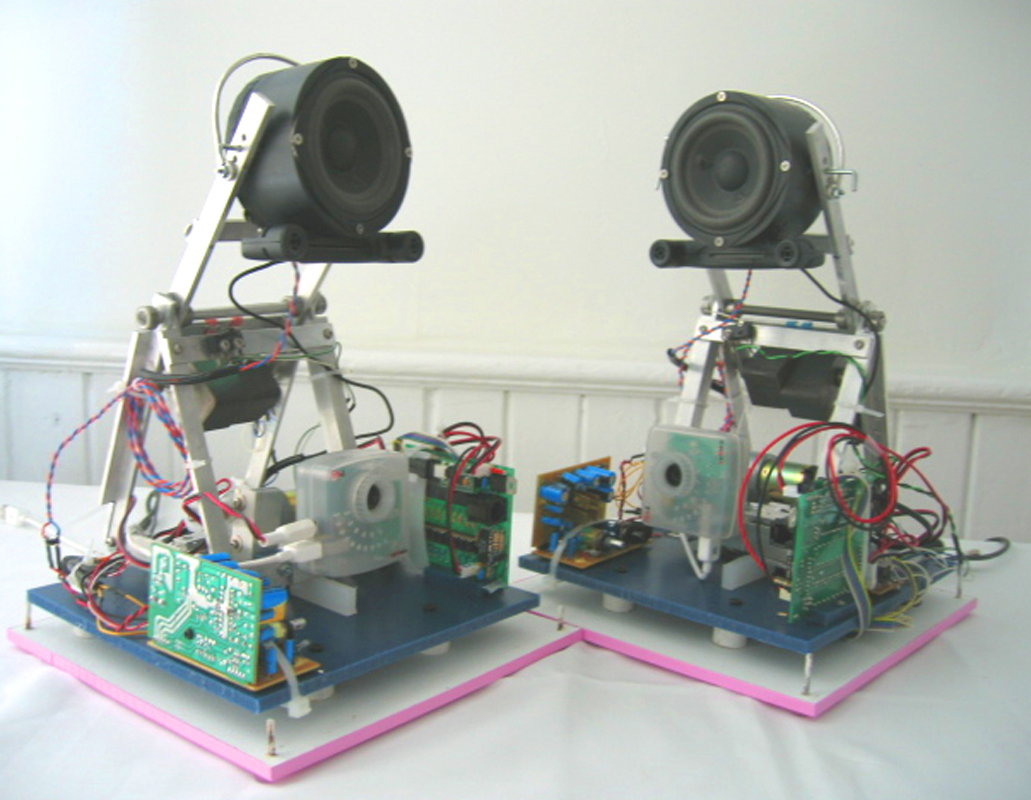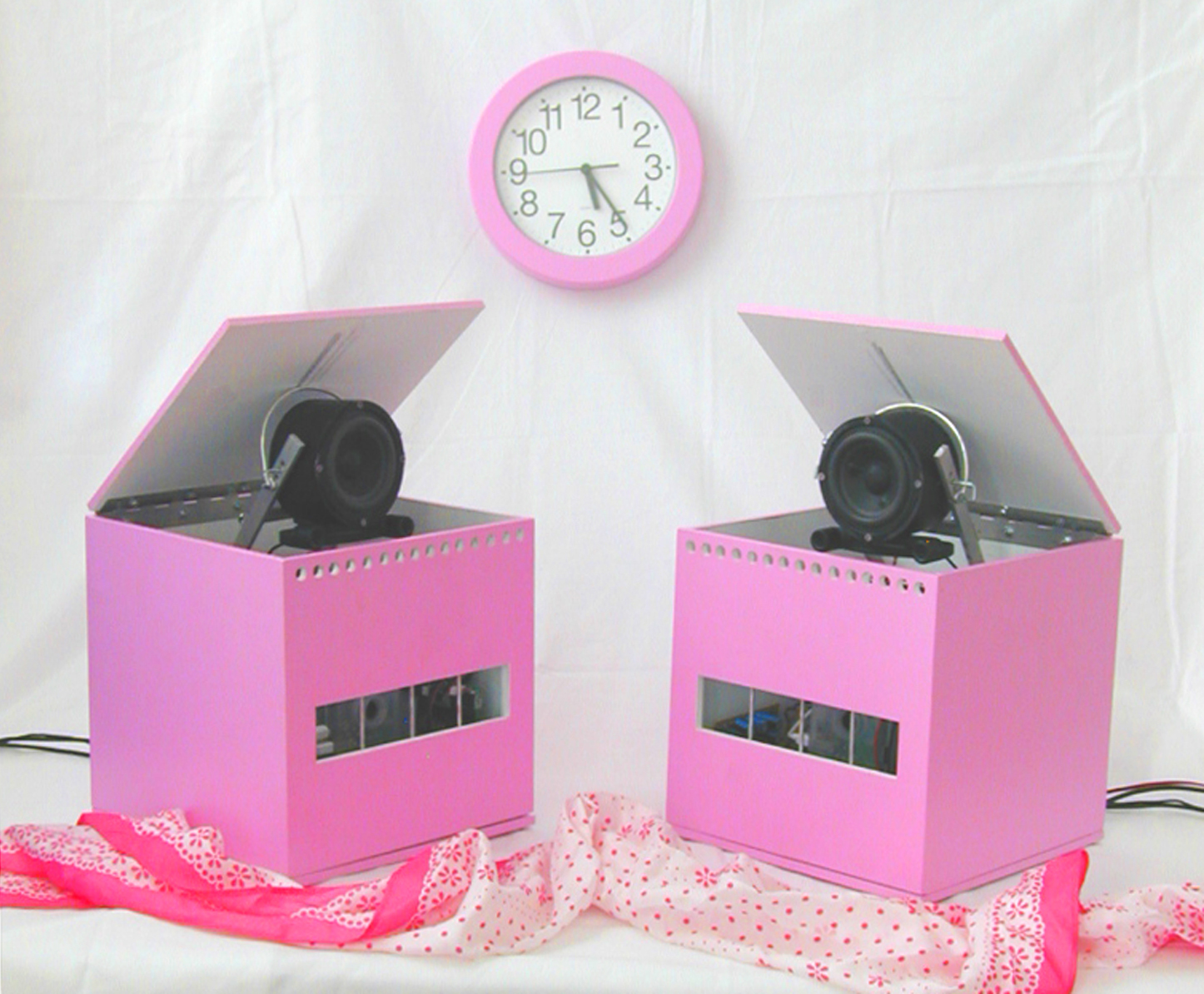Amy and Klara, 2005-2008
nasty robot futures
Amy and Klara have similar interests. They both read Salon dot com - premium content. But they do not get along. Not at all. Maybe Klara's thick German accent bothers Amy. And neither of them particularly likes the color pink. Unfortunately for Amy and Klara, they live on the same block and have pink houses! And when they get agitated they tend to fall into mutual accusations and rants. Yes, it can get rather ugly at times.
The future might be nasty.
Amy and Klara are robots capable of synthetic text to speech generation and automated speech recognition. Anyone who has ever listened to computer generated speech knows the strange feeling of hearing a voice that sounds human but feels alien. Synthetic speech has achieved such levels of 'naturalness' that it can be confused with the voice of a living human being. However, this naturalness is shallow; not even skin deep. In synthetic speech we are confronted with a new fallout of automation technologies.
It is not only the disconnect between a human voice and a box that produces it that can make one feel uncomfortable. It is also what these voices have to say to us. The language of synthetic speech recognition and synthesis systems is a highly selective subset of the full, rich and messy body of linguistic corpora that comprise our oral and written languages. Exclamations are absent, questions are rare and the vocabulary is generally optimized for commerce.
Here the charged world of foul language is under investigation. Swearing offers several interesting conduits into a critique of the under-exposed normative tendencies in automated language representation and social robotics. Why are most smart gadgets and toys friendly and playful, why are they usually modelled as pets or servants? Machines that curse and pick a fight might offer a more realistic preparation for a shared future between machines and humans.
Linguistic taboos derive from social taboos. Because defecation in public is taboo, the word shit is considered foul language. But where bodily needs differ, taboos change. Will we map our own taboos onto machines? While body centric, swearing is rarely literal. Swearing is literal language transformed into non-literal language. And swearing is so deliciously unnecessary. The fact that speech can still be understood when blasphemy is removed proves its informational redundancy. And this complements the often spotty responsiveness of even the best speech recognition systems. Misunderstandings are preprogrammed.


Texts
CHI article
Leonardo article